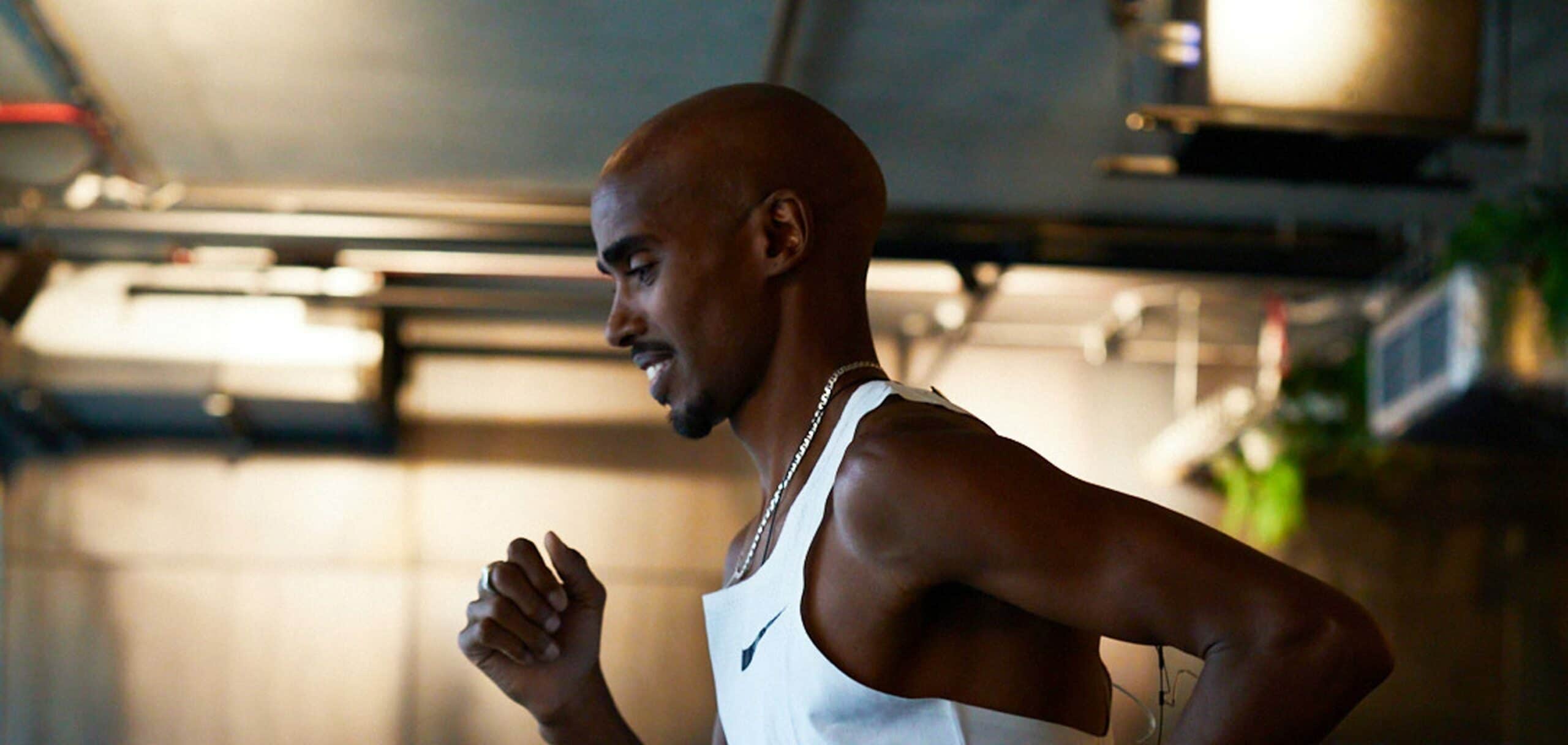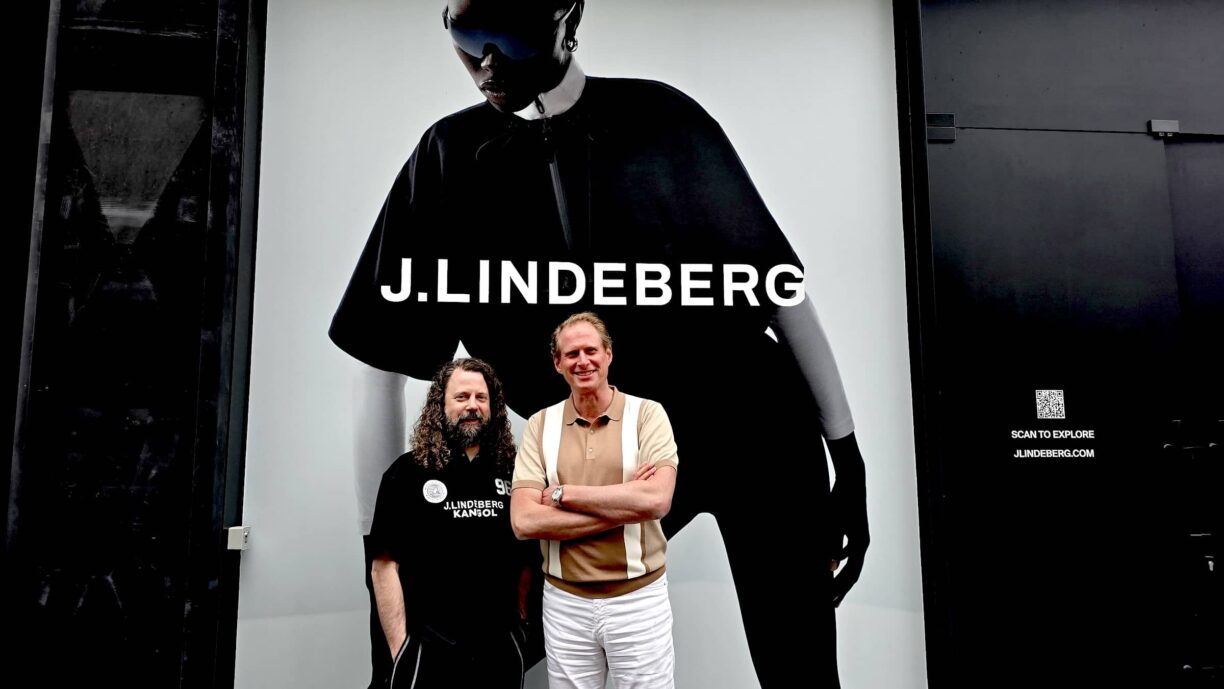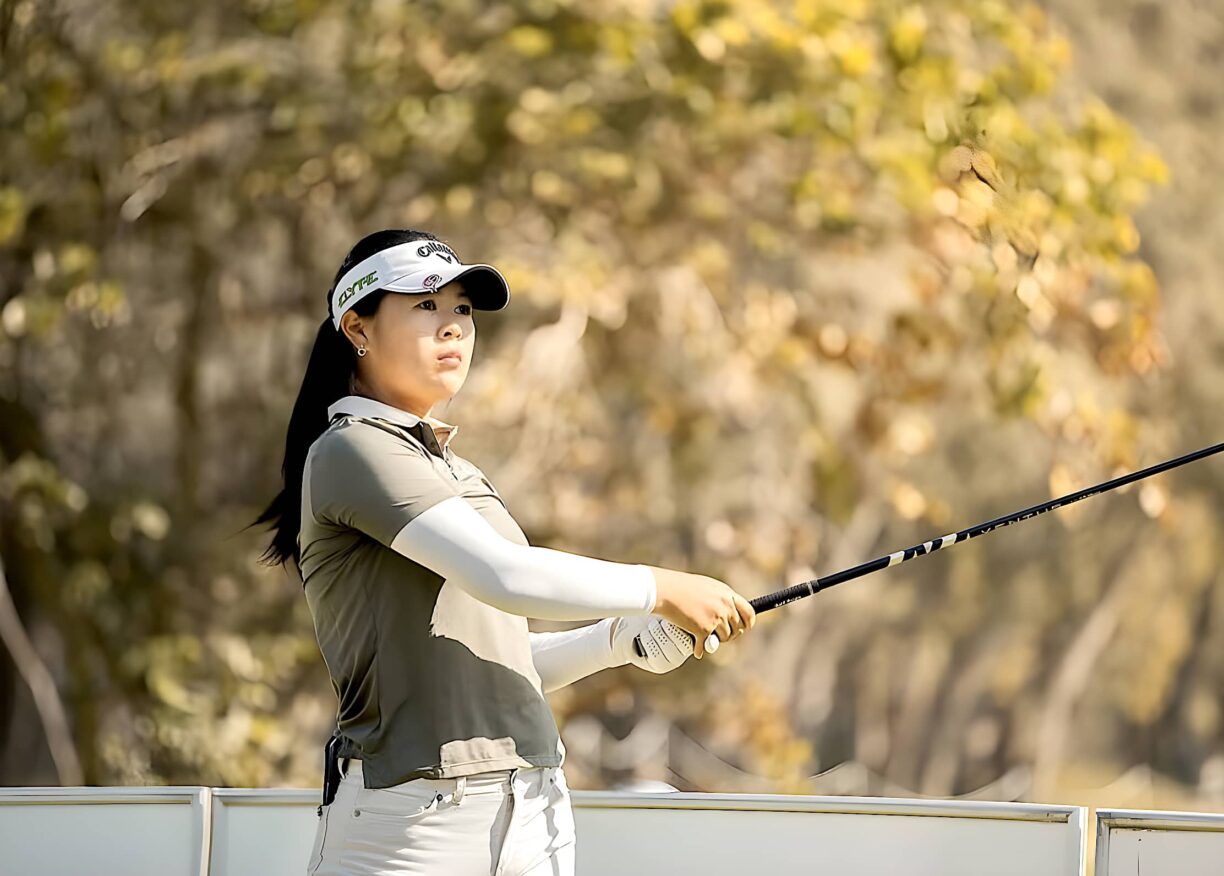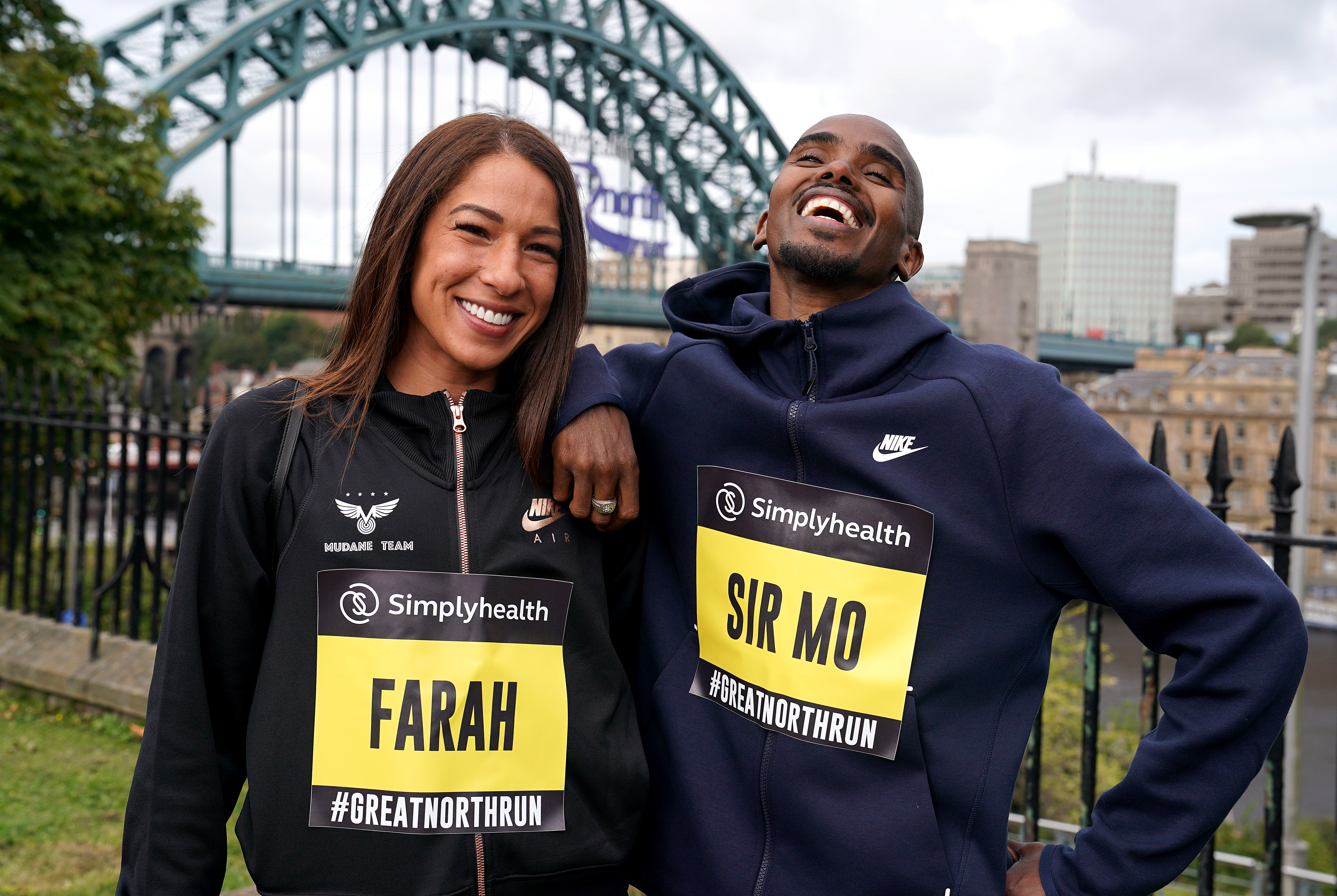
Sir Mo Farah is dancing with headphones on when our Zoom call connects, with a big grin on his face. For a gloomy winter Monday, he’s in sparkling spirits – and it’s been a pretty challenging year for the runner.
Hailed as one of Britain’s most successful ever athletes, with multiple world championship and Olympic wins under his belt, Farah failed to qualify for the Tokyo Games, as he struggled with a fractured foot. So how is he doing with it now?
“My foot is good. I’m in a good place mentally as well as physically, and I’m just enjoying things and having a lovely time, enjoying time with friends and family,” says Farah, 38.
“Obviously the kids are back in school now, so I’ve got a bit more time back to myself so I can focus a bit more on training, and just keep getting through,” says the Somalia-born athlete, who has four children with wife Tania Nell.
Recovery isn’t something that can be rushed of course, and Farah sounds like he’s finding a healthy balance with it. In terms of how his training regime is looking right now, he says: “At the minute, it’s one of those things where you kind of set yourself a task – and my first task for this year anyway was just to see if I can get a bit fitter.
And then January, depending on how much fitter I get and what my condition is, find a race somewhere, challenge myself in that race and see where I am.
Then go forward and make a plan. But a lot of it is just enjoying myself and getting back in the swing of things.”
Tokyo marked the first time Farah hadn’t been part of the British athletics squad since 2004. Injuries are a risk in all forms of sports and exercise – and while they can obviously be particularly devastating for elite athletes, coping with them can be tough for anyone. What has Farah learned about dealing with the psychological impact of injuries?
“I’ve learned a lot. For me, because I’ve had a long career and still have that ambition and drive, the hardest thing is being injured,” he says. “Because you can’t do what you love doing, and what you do every day changes, it’s almost like your whole world just changes.
You can be doing this thing every day and then suddenly it’s taken away from you. That’s the hardest thing for the mind, as well as physically.”
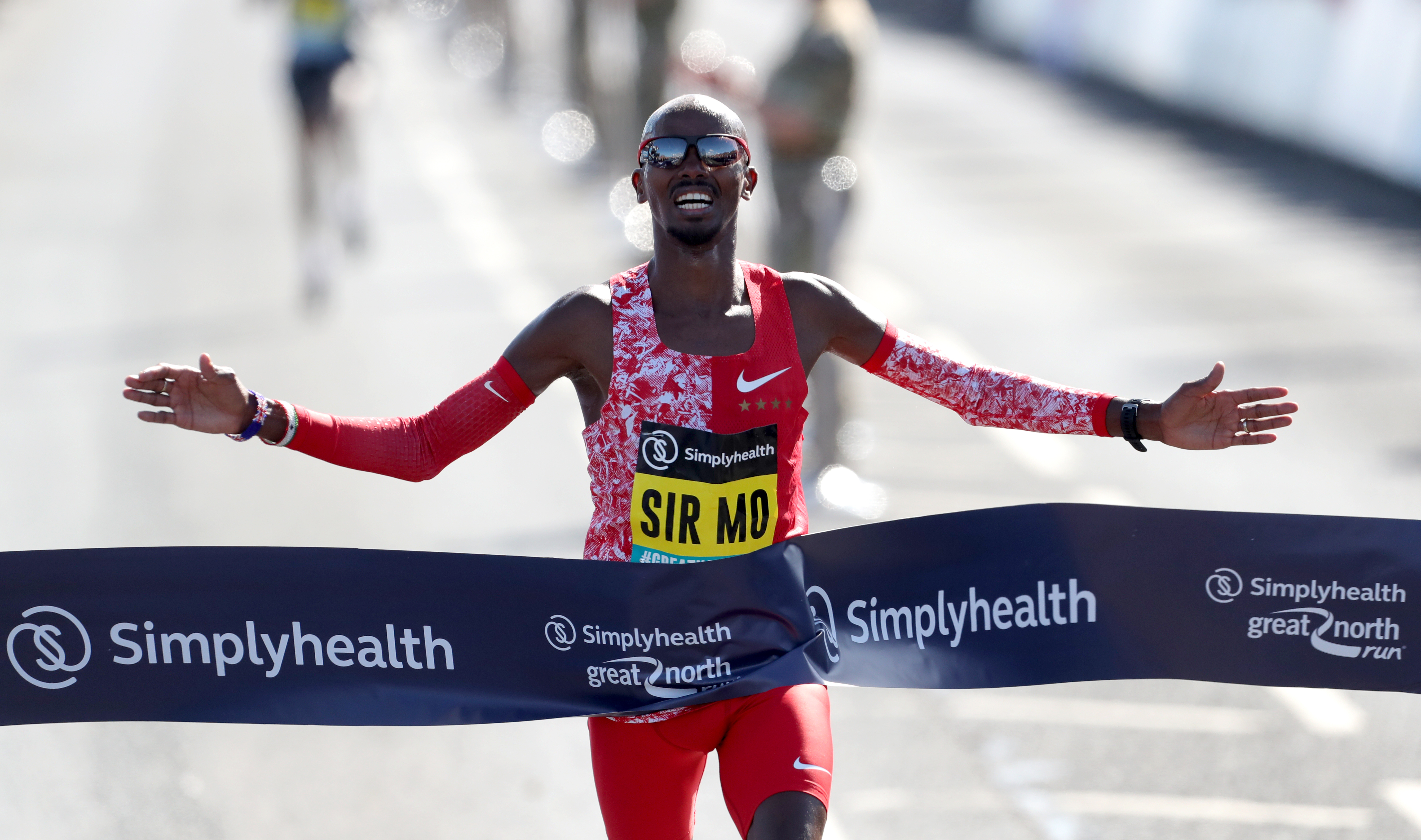
Farah says “it’s really important to think positively as well” and for him part of this is seeing what can be learned from it.
“[To] think back to the moments leading up to it and ask the questions: why am I injured, what is the problem? Am I training too hard? Did I do too much too soon? Understanding a bit more about that does help me prepare better.”
That said, as with all aspects of life, we can’t always control everything. When it comes to keeping positive in general, for Farah it’s quite simple.
“I think I just try and enjoy life and make the most of it. I have such positive people around me, particularly my family and my kids, seeing that motivates me into wanting to do more. And if something happens and there’s nothing I can change at the moment, just think about what could I do to prevent that [next time].”
Right now, Farah has teamed up with Huawei, as an ambassador for their GT 3 Smartwatch.
The new addition to the brand’s fitness tech line-up, the watch promises enhanced GPS and heartrate tracking and up to two-week battery life. It also offers more than 100 workout modes, including 12 outdoor modes, for anyone keen on monitoring their training and performance.
Fitness and health tracking is a trend that’s continued to grow in recent years – and Farah gets it.
“The amount of information that can be accessed is incredible. And I love gadgets. Fitness is really important for all of us, not just elite level but everyday fitness and living a healthy lifestyle, and having that data can be so helpful,” he adds. “Even if it’s just monitoring your steps and thinking, what challenge can I do now?”
The focus isn’t solely on work for Farah these days though. There’s a busy family life too, which he says “brings me happiness and joy”. Has becoming a parent shifted his perspective as an athlete?
“One of the things for me is, you’ve got to enjoy every day and make the most of it, and that’s all you can do. And being a parent and taking responsibility for my kids makes me understand [that] better,” he says.
“Everybody obviously will find things a bit different, and I think we’re never going to know [what it’s going to be like becoming a parent] and we do make it harder for ourselves by thinking it’s going to be hard – that’s just in our nature. But at the same time, just enjoy that moment, let it be.
“For me, it’s challenging with four kids and them doing a lot of different activities, we’re all over the place. But I appreciate that. It helps you step back a bit and appreciate it all, and just to enjoy doing your thing.”
He says being a role model for his kids is “really important for me” and “showing what is possible through hard work and determination.
What I try and teach my kids is that, and anything they do is great – as long as they try their best,” adds Farah. “That’s all you can do.”

